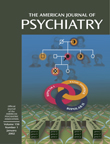The introduction and evolution of pharmacological treatment in the clinical practice of psychiatry has, in a variety of ways, often been complex and controversial. At the same time, advances in diagnosis and assessment have frequently been driven in no small measure by the availability and potential for the further development of effective pharmacological treatments.
Modern-day psychopharmacology has generally progressed from short-term uncontrolled observations regarding a new class of agents (or a new indication) to placebo-controlled trials involving patients with relatively active or acute symptoms. In many cases, the design and methods of these trials have been more careful and well-replicated than in other areas of medicine because of the nature of psychiatric disorders and the variations in public and professional attitudes toward the use of psychotropic drugs.
Once the short-term effects have been established, the next logical question becomes the indications for and potential benefits (and risks) of continuation and maintenance treatment. For schizophrenia and bipolar illness, years of extensive research were required to convince clinicians and the public that long-term treatment was appropriate and frequently beneficial. Even then, concern about serious adverse effects often led to hesitation and ambivalence on the part of clinicians in recommending long-term treatment.
As other disorders have been better characterized phenomenologically and epidemiologically, the role of psychotropic drugs has been more clearly defined; and as new classes of medications have become available, further opportunities have arisen.
This issue of the Journal includes studies that extend our knowledge regarding continuation and maintenance treatment for chronic obsessive-compulsive disorder (OCD) and bulimia nervosa.
In these studies, continued treatment with sertraline in patients with OCD and continued fluoxetine treatment in patients with bulimia nervosa were shown to be generally superior to placebo in maintaining the gains of acute treatment and in preventing relapse or exacerbation. Some of these trials represent seminal work in this context.
Although these drugs are generally well tolerated and dropout rates resulting from adverse effects were relatively low, completion rates in these trials suggest that a substantial proportion of patients discontinue treatment for reasons other than relapse, exacerbation, or adverse effects.
These studies are extremely important in advancing knowledge as to how effective continued medication administration can be, even in patients with chronic illnesses. This expands the scope of psychopharmacologic treatment, but these advances will need to be worked through in a variety of ways.
Psychiatric disorders remain poorly understood by the public at large, and adequate, consistent reimbursement for mental health services has not been achieved. As a result of these and other factors, many people with these disorders do not receive the potential benefits of effective treatment.
In addition, there continues to be a concern on the part of many patients and families that continuation or maintenance treatment represents a form of drug dependence. As one patient put it, “You mean the data show that once I take this medication for awhile I won’t be able to stop it?” We might suggest that this is a misunderstanding of the message physicians are attempting to convey, but in my experience this is not an idiosyncratic reaction. When this is viewed in the context of a variety of perceived alternative “treatment” options (many of which have vocal proponents), it is easy for patients to be confused and ambivalent about long-term pharmacologic treatment.
It is also clear that despite the enormous effort that goes into drug development and clinical trials, remarkably little attention is devoted to issues around treatment adherence and disease management.
Another report in this issue focuses on antipsychotic medication adherence in comparing typical and atypical antipsychotics. The authors found that on the basis of pharmacy refill records, VA outpatients prescribed typical antipsychotics were without medication for approximately 7 days per month, whereas those prescribed atypical antipsychotics were without medication for approximately 4 days per month.
This apparently enhanced adherence is welcome but modest. The authors conclude that it is imperative that research focus on developing effective interventions to improve medication adherence in patients prescribed antipsychotic treatment.
Although patients with psychotic disorders might have the greatest challenges in terms of adherence, as indications for continuation and maintenance pharmacotherapy extend to a variety of psychiatric disorders, treatment availability, acceptance, and adherence will require appropriate attention. This will further extend the gains made possible by the introduction of better-tolerated antidepressant and antipsychotic medications.

